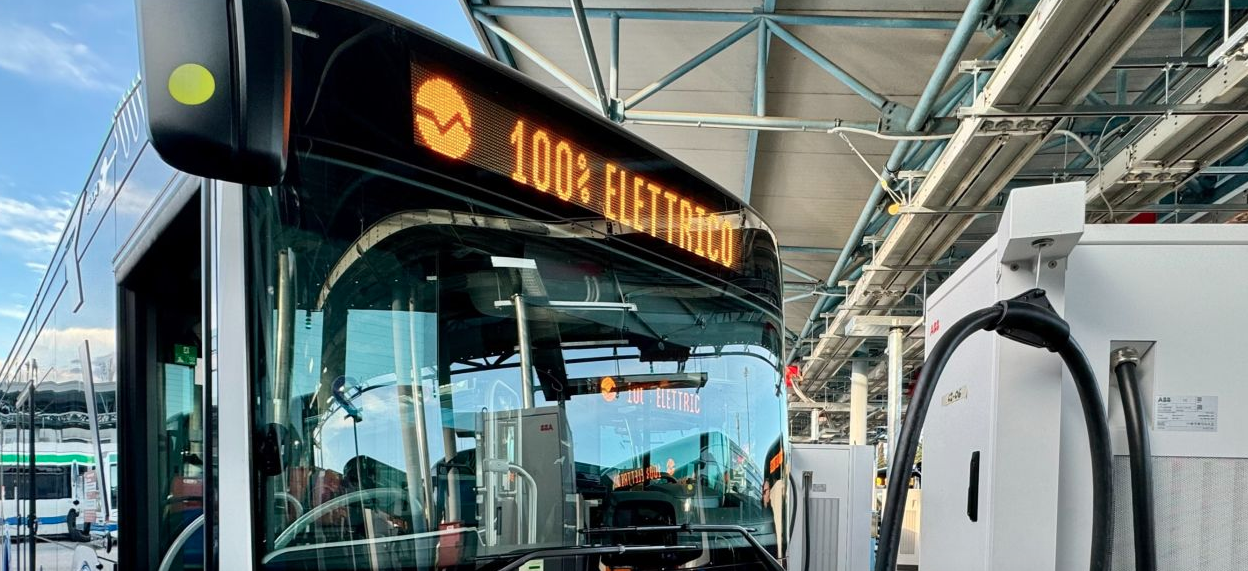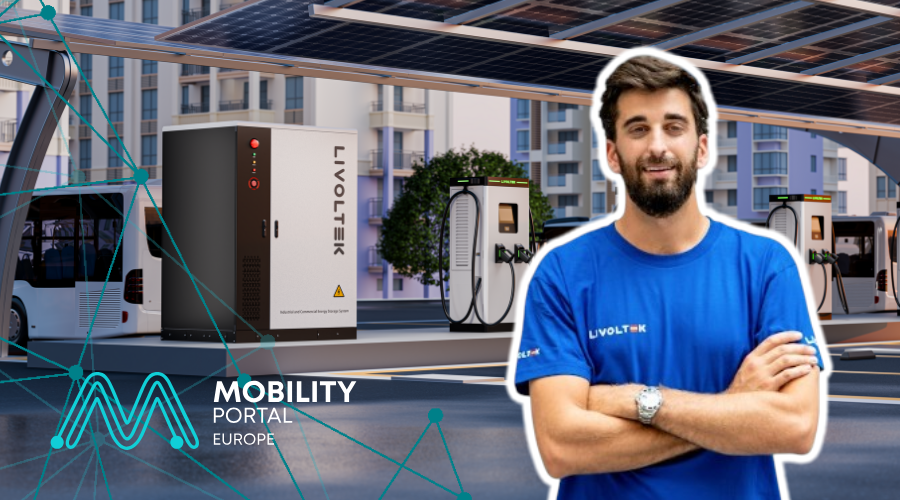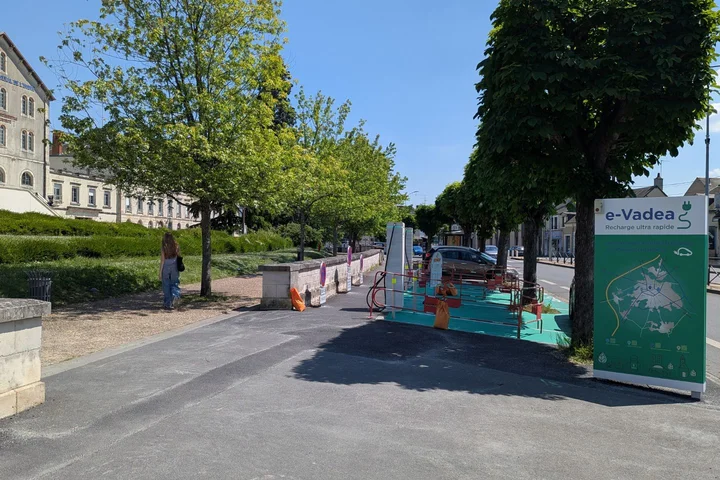As part of its decarbonisation roadmap, the City of Venice has implemented a new charging infrastructure to support the operation of its battery-electric bus fleet.
In partnership with ABB E-mobility, MAN Truck & Bus Italia, and The Mobility House, 44 ABB Terra 184 chargers have been installed at the ACTV depot, backed by a grid capacity of 5 MVA.
The buses, each covering a daily route of approximately 200 km, are recharged overnight using 150 kW DC fast chargers. This setup ensures that the vehicles are ready for full service each morning, with no interruptions to operational timetables.
The ABB Terra 184 model was selected for its compact design, modularity and power output of up to 180 kW, making it well-suited for dense urban environments. The chargers offer compatibility with both CCS2 and other standard protocols, allowing flexibility across diverse vehicle platforms.
Each charging point includes remote management capabilities, enabling real-time diagnostics, maintenance scheduling, and energy optimisation based on the depot’s load profile. The infrastructure is also scalable, allowing for future expansion as additional zero-emission vehicles are introduced.
According to ABB, the charging system has been designed to ensure full interoperability between the infrastructure, the vehicle systems, and energy management platforms. This was achieved through close coordination with The Mobility House and MAN Italia, facilitating a seamless integration between all components.
ACTV depot integration and energy planning
The charging hub is located at one of ACTV’s key depots in the Venetian mainland, forming part of a broader strategy to modernise the city’s public transport system. Venice faces particular logistical constraints due to its layout and the separation of its land and island services.
By centralising the charging operations at a high-capacity depot, ACTV ensures optimal grid use and reduces the complexity of maintaining smaller distributed charging points. The 5 MVA capacity allocated to the site allows for simultaneous overnight charging of the full fleet without overloading the local distribution network.
The involvement of The Mobility House adds a layer of smart energy coordination, with the firm’s charging and energy management systems used to balance demand, reduce energy costs, and integrate time-of-use pricing schemes.
Aligned with Italy’s PNRR and EU climate goals
This deployment is consistent with Italy’s National Recovery and Resilience Plan (PNRR), which allocates funding for sustainable mobility projects across major urban areas.
Venice’s electric bus rollout is supported through local funding and technical partnerships, rather than direct EU procurement, but aligns with broader European goals to reduce greenhouse gas emissions and improve urban air quality.
The electrification of public bus fleets is a growing trend across European cities, driven by regulatory changes, Clean Vehicle Directives, and increasing pressure to decarbonise urban transport.
While Venice presents unique geographic challenges, the project demonstrates that coordinated planning and integrated technology can deliver viable zero-emission solutions even in historically constrained cities.
Project stakeholders and future outlook
ABB E-mobility was responsible for supplying and commissioning the hardware, while MAN Truck & Bus Italia delivered the electric vehicles. The Mobility House provided the software layer to ensure optimised charging and depot energy management.
The three companies have stated that the project lays the foundation for long-term scalability and reliability, supporting further fleet expansion in Venice and potentially in other Italian cities.
While no additional tenders have been publicly announced, the infrastructure is already designed to accommodate more vehicles as demand increases.
Discover Mobility Portal Data
Discover Mobility Portal Data, a new exclusive market intelligence platform offering reliable data and key reports to support smart decision-making across the automotive sector — covering both combustion and electric vehicles, as well as charging infrastructure.
Research, trend analysis, and neatly organised statistics presented with clarity and precision, alongside up-to-date insights — all just one click away. With Mobility Portal Data, good decisions are on the horizon.
READ MORE
-
From Concept to Charger in Months: Livoltek’s Chinese–Spanish Formula
In less than six months, Livoltek’s Spanish team harnessed the technology and industrial capacity of Chinese parent company Hexing Group to develop and launch a complete range of smart chargers tailored for the European market. But behind the speed lies more than just rapid execution: it reflects an industrial strategy built on local insight, strong…
-
Product Showroom Virtual Summit: A key eMobility event set for 4 June
The international fair, held fully online and free of charge, will showcase leading companies featured in the second edition of the eMobility Book 2025.
-
SPIE deploys e-Vadea nationwide and opens first stations in Châteauroux
These projects are developed in partnership between SPIE CityNetworks and the Fund for the Ecological Modernisation of Transport (FMET), represented by DEMETER. The partnership guarantees deployment, operation and maintenance of the infrastructure over a 15-year period.










